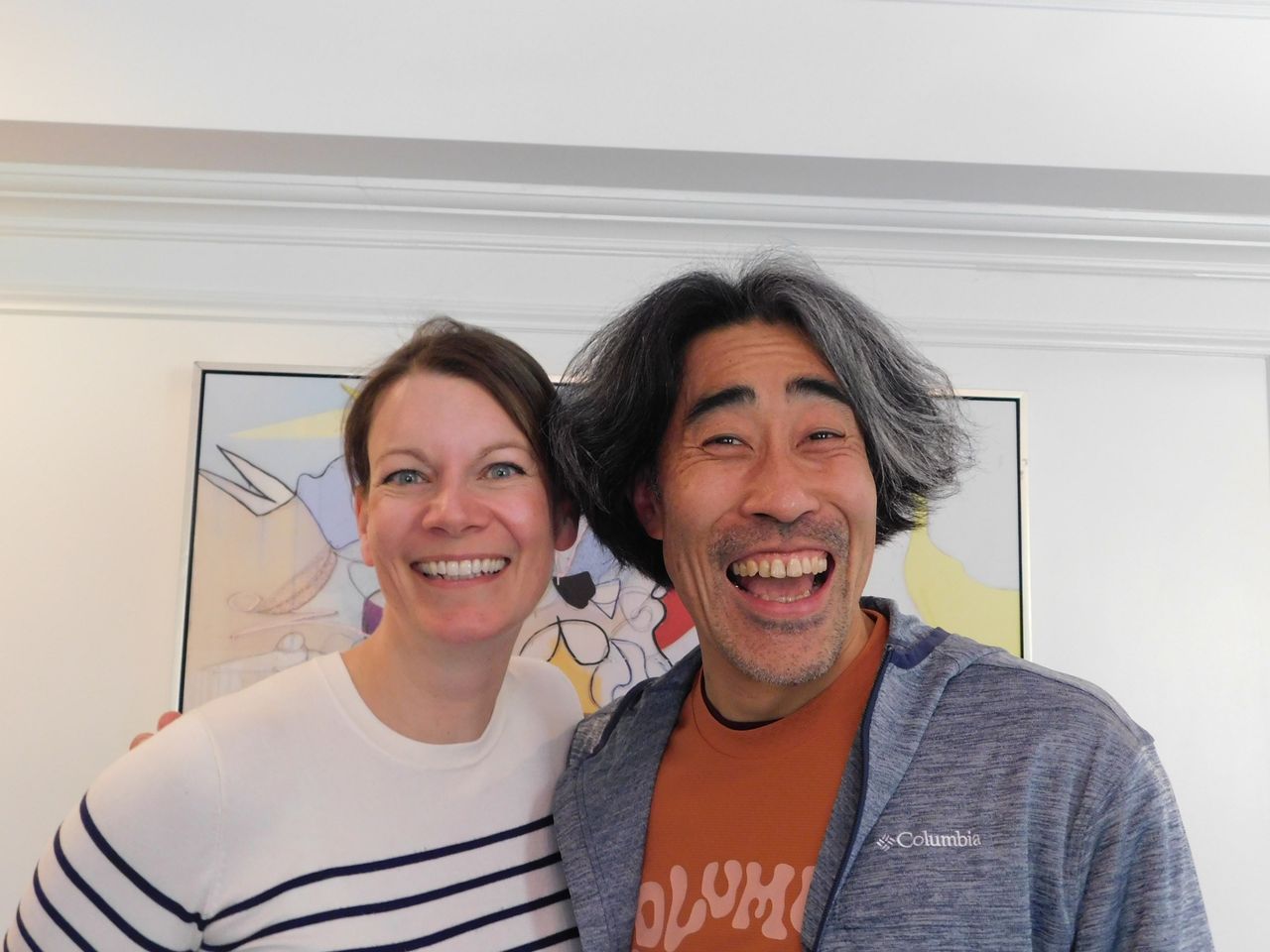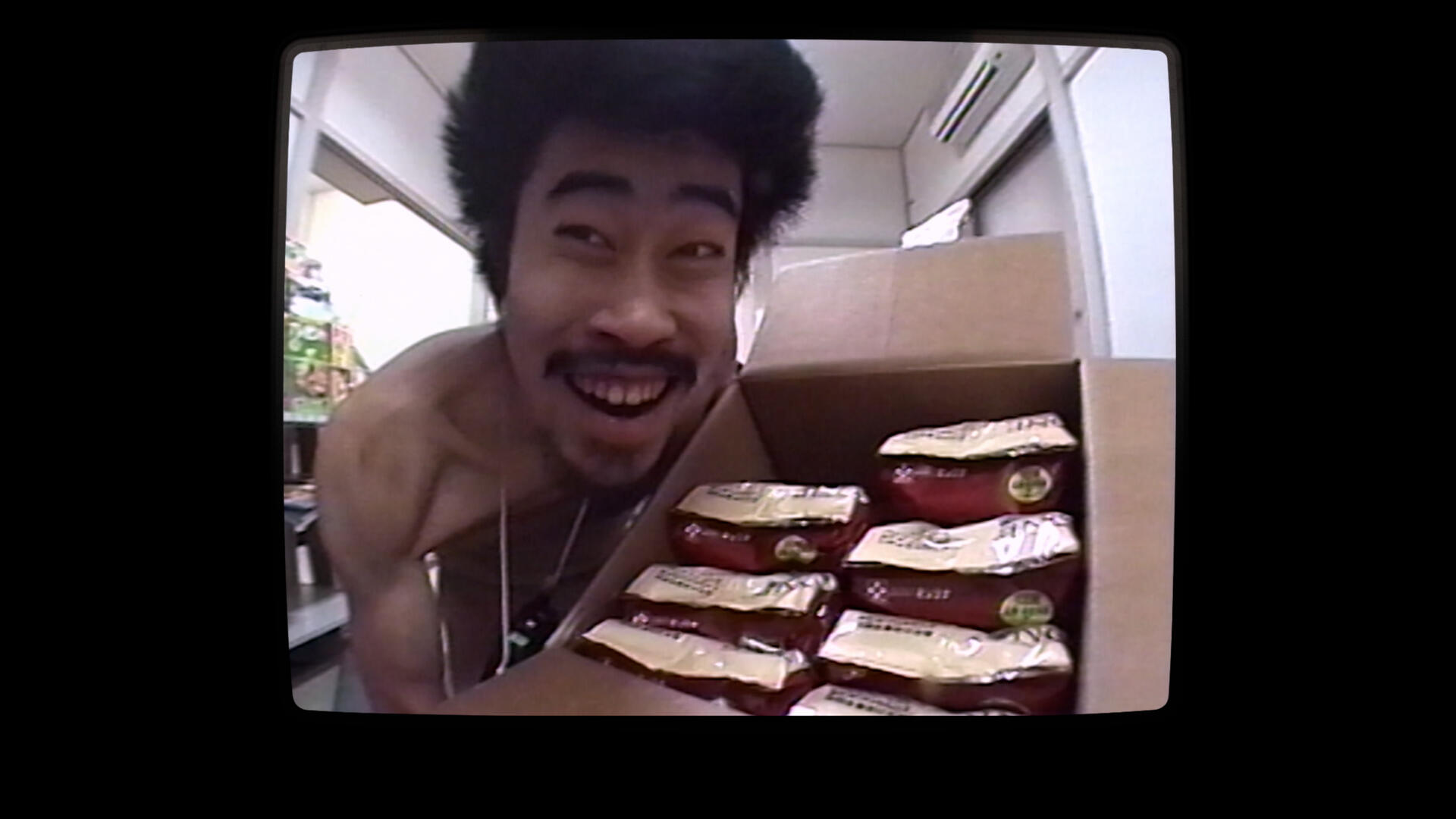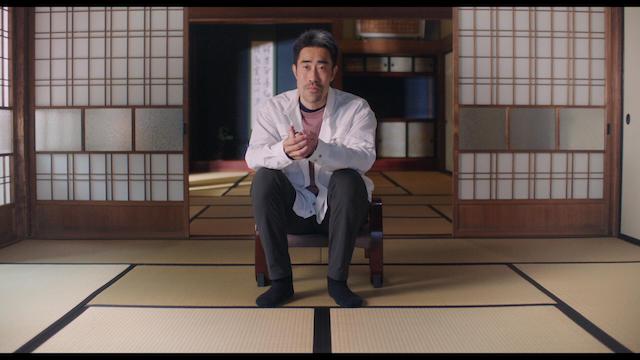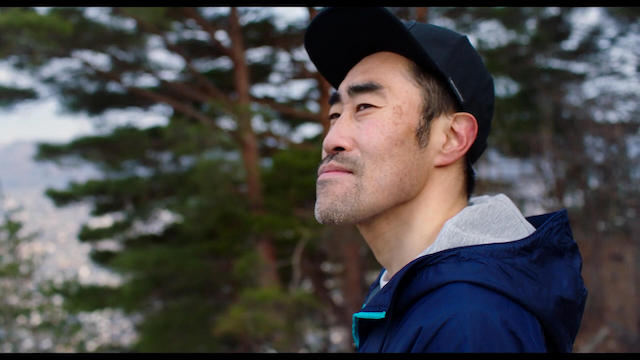
The Contestant : The incredible true story of a man who lived for 15 months trapped inside a small room, naked, starving and alone… and completely unaware that his life was being broadcast on national TV to over 17 million viewers a week.
Director : Clair Titley
Screenwriter : Clair Titley
Distributor : Hulu
Production Co : Misfits Entertainment
Genre : Documentary
Original Language : English
Release Date (Streaming) : May 2, 2024
Runtime : 1h 30m

Exclusive Interview with Comedian Nasubi and Director Clair Titley
Q: Clair, this is a particular kind of documentary. How did you discover the subject and the TV program “Denpa Shōnen”?
Clair Titley: I was working on a different project, doing some development research, and got lost on one of those internet rabbit holes. You know, when you go, “This looks a bit interesting.” Then suddenly, half an hour later, you’ve gotten distracted and are not looking at what you’re supposed to be at all. I just found this story so fascinating; the more I looked into it, the more interesting I found it. I felt that everything that I’d seen on the internet hadn’t really explored his story so much. It was about the show and a lot of the western viewpoints of it which were quite typical of this time — point and laugh at the Japanese, look at how crazy they are. The end of the story is that they didn’t really delve any deeper. I felt that there was more to the story than that. That’s why I reached out to him and said that I wanted to make a film with him, but I wanted to make it from his perspective and tell his story.
Q: In the film, you talk about your experience of being bullied as a child. To escape that situation, you started making people laugh. Can you reflect on the circumstances that led you to make that decision?
Nasubi: During my childhood, I had a problem with my long face and was bullied because of it, leading me to have a negative view of my face. After seeing a Japanese comedian, Ken Shimura, joke on a variety show, I thought that if I made jokes at school, I would make people laugh and have a positive effect. That’s why I tried to make jokes at school. After everyone laughed and other students thought I was a funny guy, the bullying decreased and I made more friends. I felt the joy of laughing when I was a child, and this may have been the starting point of my desire to make people laugh as a comedian.

Q: They used two cameras that bounce around 24-7. They obviously shot hundreds of hours of footage. They initially narrowed it down to eight hours and then cut it down to six minutes — like a super-edited version. What did you think about this process of narrowing down the footage to six minutes?
Clair Titley: I suppose what’s interesting is that this is right at the beginning of it all. There was no precedent. The producer and the director were very open at saying they were making it up as they went along. They were trying to work out what would be funny, what would be entertaining. It was trial-by-error so they put something out and if the audience loved it or if they were getting good ratings, then they put more of that in.
They were really experimenting. At that point, it was the Wild West of TV; they didn’t have a format to follow. They couldn’t go well, “This is going to be a bit like Big Brother or this is a bit like Survivor because none of those shows had come out yet. There was nothing. They were just making it up as they went along. It’s amazing, in a way, to think about the amount of creative freedom that they had. I don’t think they knew that — they weren’t expecting this to be the big hit that it was. They kind of said to Nasubi, “Who’s going to find this interesting? It’s just a naked guy in a room” but of course, it became this enormous sensation.
Q: When you were chosen to appear on “”Denpa Shōnen’s Prize Life” in January 1998, you were a young comedian — Nasubi — who was forced to live for 15 months naked in an apartment in Japan — and later South Korea —living only on the prizes won in sweepstakes., The producer, Toshio Tsuchiya, told you that this “”Denpa Shōnen’s Prize Life” would hardly be shown on TV. You hadn’t signed a contract to appear in the program. Didn’t you suspect what was going on at that point?
Nasubi: There were certainly a lot of questions. At first, the audition was conducted by lottery and we weren’t given any information about the project. But before that, “Denpa Shōnen” had been done by comedians, most recently by hitchhiking across the Eurasian continent and then across the United States. I went to the audition thinking that I was also going to hitchhike.
When I was told that they were going to choose one of them, I was confused because the other comedians had been to Eurasia and the U.S., so was I going to Africa by myself? I was still not informed of the details of the project, but I was told, “This next project requires luck, so we’ll choose a lucky person from this group. The audition will be a lottery.” At that moment, I contemplated, “What?” I didn’t even have a passport at the time, so if I was going to be taken overseas, how was I going to get to Africa?
But when I was taken there, I was told, “You will live here from bare bottom to the top with only the prize money.” My confusion stemmed from lack of information, even if I were informed that the prize money’s target was one million yen, I wouldn’t be able to comprehend it. It was unimaginable to me that individuals could live solely on prize money, so I and the staff were uncertain about whether or not it would be intriguing.
I wondered if this could actually be aired, and of course, given the fact that I was naked, there were many questions. I thought that this was probably a rejected project. I couldn’t see myself winning such a prize, living with it for an extended period, and accomplishing a goal of one million yen when I first learned about it. It occurred to me that there might have been numerous rejected projects on “Denpa Shōnen.” I believed that this might have been one of them, although it was rarely aired. If the staff and producers of “Denpa Shōnen” and NTV remembered my face, there might be a chance for something else.

Q: What was interesting about this show “Denpa Shōnen’s Prize Life” is that, from the outside, when you watch a TV show, you can really be an innocent fan of it. At the same time, as you pointed out, it was like seeing a war survivor, somebody who had struggled, eating food or facing a tough time finding any food there at all. It’s not easy to watch, particularly for war survivors. [The show] pointed in that direction because many people didn’t realize the effect that they had with different generations.
Clair Titley: A lot of people will feel uncomfortable watching this film. They’ll start off by laughing, then catch themselves and find themselves laughing and then feel a bit awkward and uncomfortable with themselves. I think it’s good that we go through those emotions and then catch ourselves.
It’s one of those things that we were trying to get across — what it was like for a Japanese audience to watch at that time; that’s why we painstakingly translated all the graphics and audio into English so that a Western audience can see and feel what it’s like in the moment to watch that and feel the comedy value, I suppose. Also, the other thing that we did was that we stripped everything back so that you actually got a sense of what it was like for him in the room with nothing going on, without the canned laughter.
Q: At that time, when you appeared on “Denpa Shōnen’s Prize Life,” you kept a diary in a notebook. Looking back now, how did you express your feelings in writing?
Nasubi: As I became more and more mentally involved in my own life, I felt like I was fighting a battle against loneliness. In a sense, writing a diary was a way for me to release some stress, to be aware that someone would read it, and to connect with someone outside the world I was in, to write something about my feelings. I believe that writing about my feelings helped me feel less stressed. writing about my emotions helped me relieve some stress. I was attempting to preserve my emotions, not alone, but to convey a message to a third party. It was my method of maintaining my mental state by writing about my resolve or inner self rather than being a suicide note.

Q: That’s so true. Several years ago, there was a woman named Hana Kimura who actually died in a reality TV show — “Terrace House.” What did you think about how they draw lines for a reality TV show — how far can they go? How can you accept those guidelines? What are the boundaries to the producers’ decision-making?
Clair Titley: There have been suicides related directly to TV shows in the UK as well. I know it’s something that happens worldwide. I don’t know about in the US, but I’m sure there are examples. It’s hard to know where the line is, I suppose, to an extent, because it’s ever moving and people are pushing the boundaries of it all the time. It’s quite easy to look back at “Denpa Shōnen” and to Keishu Sekatsu and say, “Oh well, this was out of order. They knew it from the start and it’s wrong.”
But I wonder how far, with the example of Terrace House in mind, have we really come and whether things are any different. I remember the first time that I met Tsuchiya in London with producer Andy Ryder. He said, “if you get involved with this film, you’ll have to ask difficult questions. People are going to ask about reality TV and the morals of what was done.”
He interestingly said, “In Japan, we would never do something as cruel as what you Brits did with “Love Island.” He thought that that was on another level. It’s all about your perspective, where you come from, and it made me really question, “It’s all very well to go, look, weren’t they evil back then? wasn’t that all wrong?” But actually, how far have we really developed? How far have we come?
Nasubi: One difference between today’s reality shows and “Denpa Shōnen” is that these days there are social media services and in those days, there weren’t social media services. I didn’t even know that the show was on the air, so I had no access to any evaluation from the outside world. The major difference between now and the past is whether you’re aware of the discrepancy between your thoughts and words in real-time or not.
In my situation, I only realized it after it was all said and done, that it was possible a portion of me was safeguarded. I am concerned that even the evaluations of myself that I do not want to hear or see will be exposed to the public and viewed by many people. Perhaps it’s the distinction between the “Denpa Shōnen” program which was at the beginning of reality TV and the reality programs that are now frequently shown on YouTube and other media.
Q: After “Denpa Shōnen’s Prize Life,” what inspired you to work in Fukushima after the Great Eastern Japan Earthquake? How did that inspire you to challenge Everest in order to give people courage?
Nasubi: It was not easy for me to get rid of the trauma and hardships I had experienced during my prize-winning life. However, I overcame the trauma, so I was able to treat the victims as if I were in a vulnerable position. In other words, I was in the same situation as those who had experienced hardships. When I told the people at the evacuation center that I had lived on dog food without contact with anyone else — even if they had a much harder time than I did — I felt that I had shared the same feelings as they had. During my discussion of living without knowing what tomorrow would bring, those who were watching the program at the time suggested that they may be experiencing a more difficult time than I did.
I tried and failed at Everest three times, and many times I wanted to quit or felt I couldn’t go on any longer. But when I suddenly remembered the “prize-winning life,” I felt that I could still do my best because I had experienced more pain at that time. I thought, “I can still do my best. Despite the conflict and wars, I have accepted Mr. Tsuchiya’s apology and have a new relationship with Toshio Tsuchiya. I am not kidding when I say that he put me through hell.” In the past, I thought that we would never be able to breathe the same air or work together again. However, as time goes by, people change. Mr. Tsuchiya apologized to me, and I accepted his apology. We decided to do something together.
Seeing a new future may lead us to change and understand each other eventually, regardless of past hardships. In a broad sense, I think that my struggles with “Denpa Shōnen” have not been in vain if others can understand me.
Check out more of Nobuhiro’s articles.
If you liked the article, share your thoughts below!
Here’s the trailer of the film.

